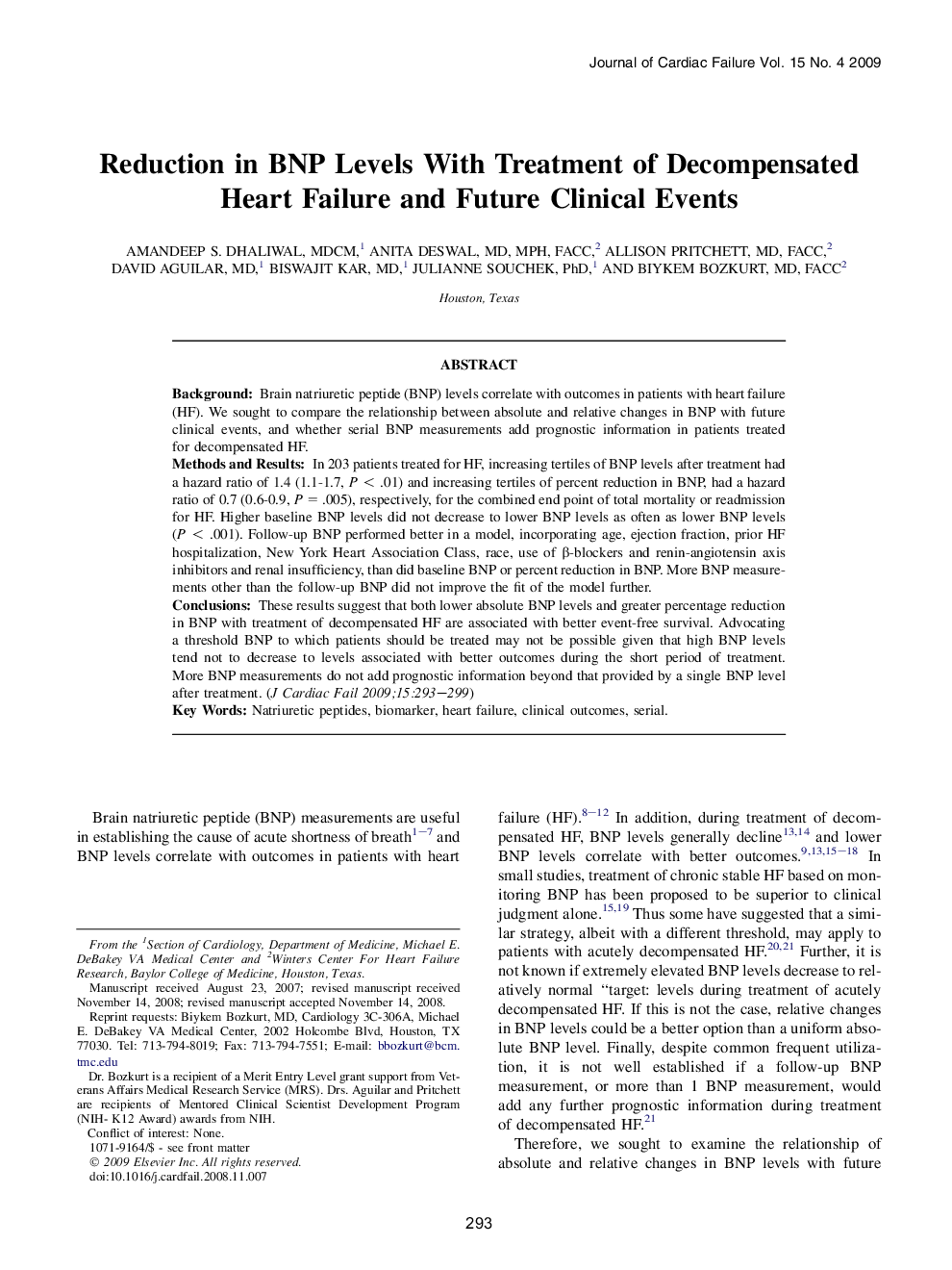| Article ID | Journal | Published Year | Pages | File Type |
|---|---|---|---|---|
| 2960640 | Journal of Cardiac Failure | 2009 | 7 Pages |
BackgroundBrain natriuretic peptide (BNP) levels correlate with outcomes in patients with heart failure (HF). We sought to compare the relationship between absolute and relative changes in BNP with future clinical events, and whether serial BNP measurements add prognostic information in patients treated for decompensated HF.Methods and ResultsIn 203 patients treated for HF, increasing tertiles of BNP levels after treatment had a hazard ratio of 1.4 (1.1-1.7, P < .01) and increasing tertiles of percent reduction in BNP, had a hazard ratio of 0.7 (0.6-0.9, P = .005), respectively, for the combined end point of total mortality or readmission for HF. Higher baseline BNP levels did not decrease to lower BNP levels as often as lower BNP levels (P < .001). Follow-up BNP performed better in a model, incorporating age, ejection fraction, prior HF hospitalization, New York Heart Association Class, race, use of β-blockers and renin-angiotensin axis inhibitors and renal insufficiency, than did baseline BNP or percent reduction in BNP. More BNP measurements other than the follow-up BNP did not improve the fit of the model further.ConclusionsThese results suggest that both lower absolute BNP levels and greater percentage reduction in BNP with treatment of decompensated HF are associated with better event-free survival. Advocating a threshold BNP to which patients should be treated may not be possible given that high BNP levels tend not to decrease to levels associated with better outcomes during the short period of treatment. More BNP measurements do not add prognostic information beyond that provided by a single BNP level after treatment.
